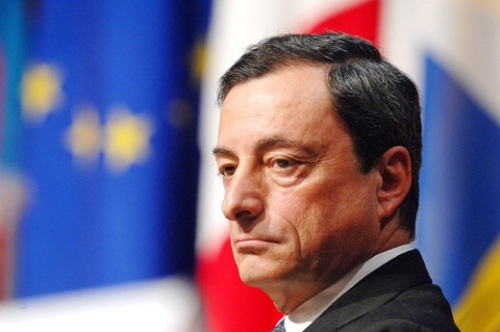
“Draghi good – Trichet bad” – is only one hyperbole headline among dramatic news producing rapid swings in the financial markets as well as sentiment toward the Euro and Eurozone crisis. Crisis continues but now European Central Bank stepping in with rate cut offers more coordinated and effective approach just as chaos appeared the rule and perhaps embarrassment during France’s G-20 hosting in Cannes.For Euro leaders Sarkozy, and Merkel, it's kind of like having a family squabble in the kitchen while the business guests you desperately need are waiting in the dinning room for dinner to be served.
Will There be Greek Eurozone Referendum & Its Precedent Implications for PIIGS:
Call for referendum by Prime Minister George Papandreou on future of austerity and effectively the Euro for Greece plunged the politicians and financial markets into panic. (It is not at all certain though that referendum actually will proceed or has majority of support among Greek’s political elite-in fact as off early November 3, 2011, it looks ever less likely to move forward). However, while the call for Greek referendum came unexpectedly, such events should not be a surprise in the face of rapid developments and particularly the demands placed upon various countries and their populations for severe austerity – and especially when such comes in large part from Brussels and EU partners. Undoubtedly the Greek precedent could be repeated in other struggling Eurozone countries (PIIGS – Portugal, Italy, Ireland and Spain), and this would be unsettling for political and financial stability in the Eurozone and even beyond.
Structural Flaws Still Unresolved:
All of this can be understood as symptoms of structural flaws within the Eurozone coming to roost one way or another. The so-heralded “Greek bailout” largely left unaddressed such fundamental structural flaws as well as leaving many details ambiguous. (When the Euro crisis was starting to evolve, we then highlighted the structural considerations that would have to be addressed sooner or later. READ – “Death of the Euro”-
diplomaticallyincorrect.org/films/blog_post/death-of-the-euro-by-ambassador-mo/29753 ). When the “Greek bailout” was announced last week, most understood that this was the beginning of the road toward resolution, more symbolic even than substantive with respect to EU and Eurozone leaders being able to work in coordinated fashion in addressing the many more difficult structural impediments. (READ – “Step Toward Eurozone Resolution” -
diplomaticallyincorrect.org/films/blog_post/step-toward-eurozone-resolution-money-flash-by-ambassador-mo/38351).
European Central Bank Finally Jumps in?
Las week we note the conspicuous absence of the ECB in the Greek bailout settlement. Not coincidentally, those were the last few days of Jean-Claude Trichet’s stewardship. Trichet was against ECB becoming involved in the Eurozone bailout as the US Fed was in the US in 2008. More perplexing, was Trichet’s pre-occupation with not so evident inflationary pressures and raising ECB rates when the malaise in European economic growth warranted perhaps cuts. The PIIGS especially suffered who faced a three way squeeze: fiscal austerity, higher borrowing costs as well as economic growth dampened by increasing ECB rates.
On November 1, 2011, a new ECB Chief took over from Trichet, the Italian Mario Draghi, (PHOTO). On November 3, 2011, Draghi instituted an ECB rate decrease. It was only 0.25%, but it had also symbolic meaning that he was willing to cut and also so dramatically sever any semblance of continuity with Trichet’s hawkish policies. Of course Draghi continues to profess commitment to “continuity,” but he appears a bit like the husband professing love as he is about to file divorce papers on basis of “irreconcilable differences”
Plainly spoken, lower Euro rates and a lower exchange valued Euro are probably a necessary ingredient for any resolution, along with greater ECB involvement in the process. Lower Euro translates to economic stimulus, especially in the weaker PIIGS where such is even more critical to offset austerity that is now choking growth. Further, if the lower Euro delivers higher inflation, that may help sovereign debtors monetize (effectively reduce value of such debt).
By Ambassador Muhamed Sacirbey
Facebook – Become a Fan at “Diplomatically Incorrect”
Twitter – Follow us at DiplomaticallyX
Related Reports at “International Financial Crisis Channel” -
diplomaticallyincorrect.org/c/international-financial-crisis

